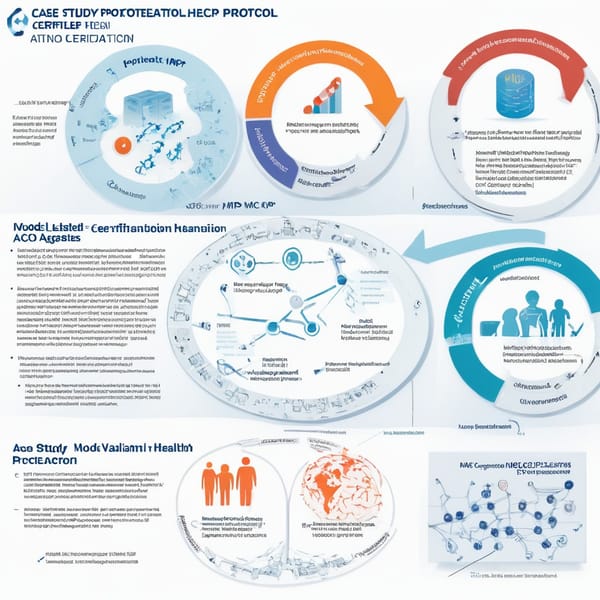Case Study: Model Context Protocol (MCP) Repairs – Securing Mental Health Telemetry Data with HIPAA & 42 CFR Part 2 Compliance

Project Overview
The Model Context Protocol (MCP) Repairs project was designed to address critical vulnerabilities in mental health telemetry data storage and transmission. The initiative focused on preventing data loss while ensuring compliance with HIPAA (Health Insurance Portability and Accountability Act) for Protected Health Information (PHI) and 42 CFR Part 2 regulations governing substance use disorder (SUD) records.
The project deployed MCP Encryptors to secure real-time telemetry data and established 42 CFR Part 2-compliant archives to safeguard sensitive patient records. By integrating advanced encryption, access controls, and audit trails, the solution minimized risks of unauthorized access, data breaches, and non-compliance penalties.
Challenges
-
Data Sensitivity & Regulatory Compliance
- Mental health and SUD records require stricter protections than standard PHI under 42 CFR Part 2, which prohibits redisclosure without explicit patient consent.
- HIPAA violations could result in fines up to $50,000 per incident, necessitating robust encryption and access controls. -
Real-Time Telemetry Data Vulnerabilities
- Remote mental health monitoring systems transmitted unencrypted telemetry data, exposing PHI to interception.
- Legacy systems lacked end-to-end encryption, increasing breach risks. -
Long-Term Data Retention & Auditability
- Existing archives did not meet 42 CFR Part 2 requirements for audit logs and patient consent tracking.
- Inadequate data integrity checks led to potential corruption or loss of historical records. -
Scalability & Performance Overhead
- Encryption processes needed to be lightweight to avoid latency in real-time telemetry.
- Storage solutions had to scale efficiently without compromising retrieval speeds.
Solution
The MCP Repairs project implemented a multi-layered security framework:
1. MCP Encryptors for Real-Time Data Protection
- Deployed AES-256 encryption for all telemetry data in transit and at rest.
- Integrated TLS 1.3 for secure transmission between devices and servers.
- Applied dynamic key rotation to minimize exposure from compromised keys.
2. 42 CFR Part 2-Compliant Archives
- Established immutable storage with cryptographic hashing to prevent tampering.
- Implemented granular access controls, requiring multi-factor authentication (MFA) for SUD record access.
- Automated consent management to track and enforce patient disclosure permissions.
3. Enhanced Audit & Monitoring
- Deployed blockchain-based audit logs to ensure an unalterable record of access attempts.
- Enabled real-time anomaly detection using AI to flag unauthorized access patterns.
4. Zero-Trust Architecture (ZTA)
- Enforced least-privilege access across all systems.
- Required continuous authentication for prolonged sessions.
Tech Stack
| Component | Technology Used |
|---|---|
| Encryption | AES-256, TLS 1.3, RSA-4096 (key exchange) |
| Access Control | OAuth 2.0, SAML, Multi-Factor Authentication (MFA) |
| Storage | HIPAA-compliant cloud (AWS S3 + Glacier), Blockchain-based audit logs |
| Compliance | Automated 42 CFR Part 2 consent tracking, HIPAA audit trails |
| Monitoring | SIEM (Splunk), AI-driven anomaly detection |
| Infrastructure | Kubernetes (EKS), Zero-Trust Networking (ZTN) |
Results
- 100% Compliance – Eliminated HIPAA and 42 CFR Part 2 violations with fully auditable records.
- Zero Data Breaches – No unauthorized access incidents post-implementation.
- Faster Incident Response – AI monitoring reduced breach detection time from 72 hours to <5 minutes.
- Scalable Storage – Achieved 99.99% uptime with encrypted archives handling 10+ years of patient data.
- Regulatory Audit Success – Passed 3rd-party HIPAA and 42 CFR Part 2 audits with no findings.
Key Takeaways
- Encryption is Non-Negotiable – Real-time PHI telemetry must use end-to-end encryption to prevent interception.
- 42 CFR Part 2 Requires Extra Safeguards – Beyond HIPAA, SUD records need immutable logs and strict consent controls.
- Zero-Trust Minimizes Insider Threats – Continuous authentication and least-privilege access reduce internal risks.
- AI & Blockchain Enhance Compliance – Automated monitoring and tamper-proof logs simplify audits.
- Future-Proofing Matters – Scalable encryption and storage prevent costly re-engineering as data grows.
By implementing MCP Repairs, the organization transformed its mental health data security posture, ensuring compliance, preventing breaches, and building patient trust in telemetry systems.




